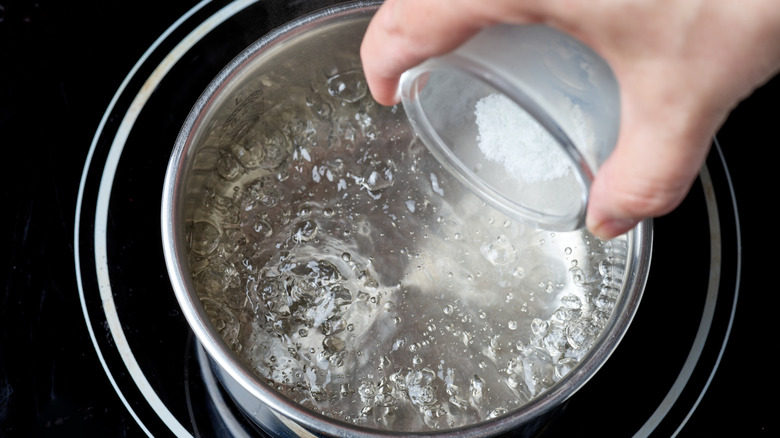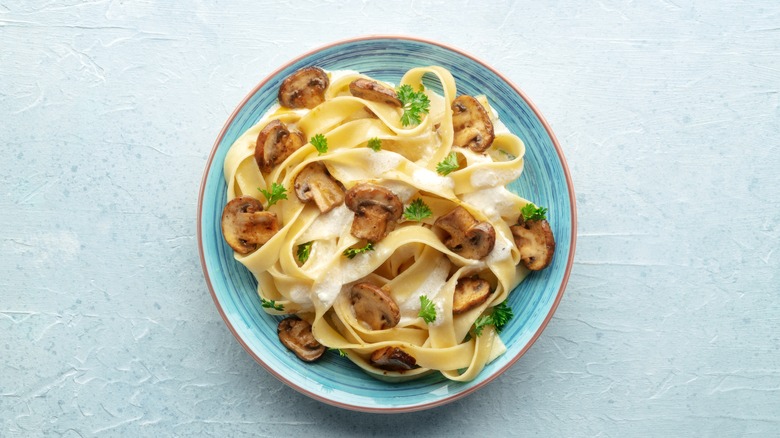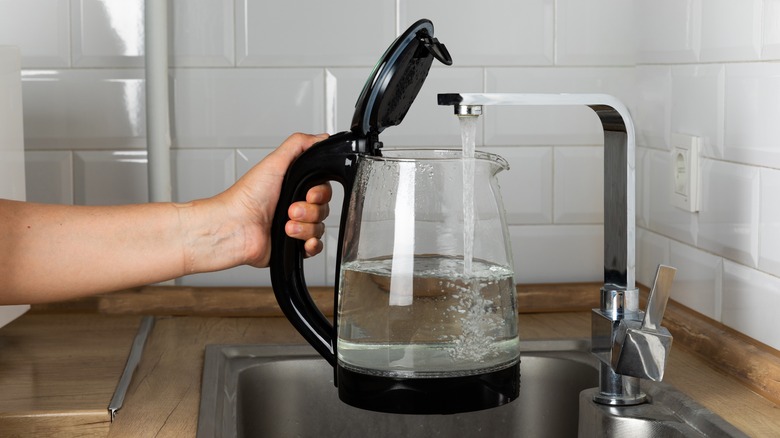Does Adding Salt Actually Make Water Boil Faster?
Cooking doesn't always feel like the fastest process, especially for those who don't want to spend more time in the kitchen than necessary. Getting your water to boil is one of those boring but essential steps when cooking pasta, vegetables, and other ingredients. Many of us are already adding a pinch of salt to the water in hopes of speeding things up, but does it really make water boil faster? Food scientist Morrine Omolo told Southern Living, "Adding salt to water doesn't make it boil faster. At the concentrations typically used in food, it increases the boiling point."
In fact, the boiling point can increase by a few degrees. The reason behind this, as Omolo explains, is that "The added salt 'fights' to hold onto the water molecules, so it takes more heating to 'release' the water vapor into the atmosphere." So, salting your water may actually slow down the water boiling process, but the difference in boiling time would come down to seconds.
Why you should still salt your water
Salting water before bringing it to a boil may not affect boiling time, but it will certainly affect flavor. When you add salt to your water, it is slowly absorbed by your food while cooking, which produces a more complex overall flavor. Salting your water is the way to go if you want to cook perfect pasta, vegetables, or anything else that you want to absorb flavors. For pasta, salting the water allows for deeper absorption and is also a great way to ensure that your entire dish is evenly seasoned.
Adding salt to your boiling pot of water is also a good trick when understanding how to cook vegetables. Apart from evenly seasoning them, salted water can actually help preserve their nutrients and natural flavors. The salt will stop plant cell liquid from leaking out of the vegetables.
Tips to making your water boil faster
Salt might not be the answer to making your water boil faster, but a few tips can make a difference. Using an electric kettle to pre-boil some of your water is a great way to shave off some cooking time. Simply boil some water in your kettle before adding it to your pot with more water on the stove. Using already hot water will decrease the overall boiling time of your water.
Putting a lid on your pot will also help keep the heat trapped inside and allow your water to heat faster. Using only as much water as required is also a great way to reduce boiling time. It might sound obvious, but less water in the pot will require less energy and less time to boil! So start with less water than you think.
An efficient stove top is also a key factor in reducing boiling time. Boiling water on an induction cooktop vs traditional cooking surfaces can make the boiling time 2-4 minutes less than a conventional cooking surface. Even if you have a traditional stovetop, following some of the previously mentioned tips will get your weeknight pasta bolognese on the table quickly.


